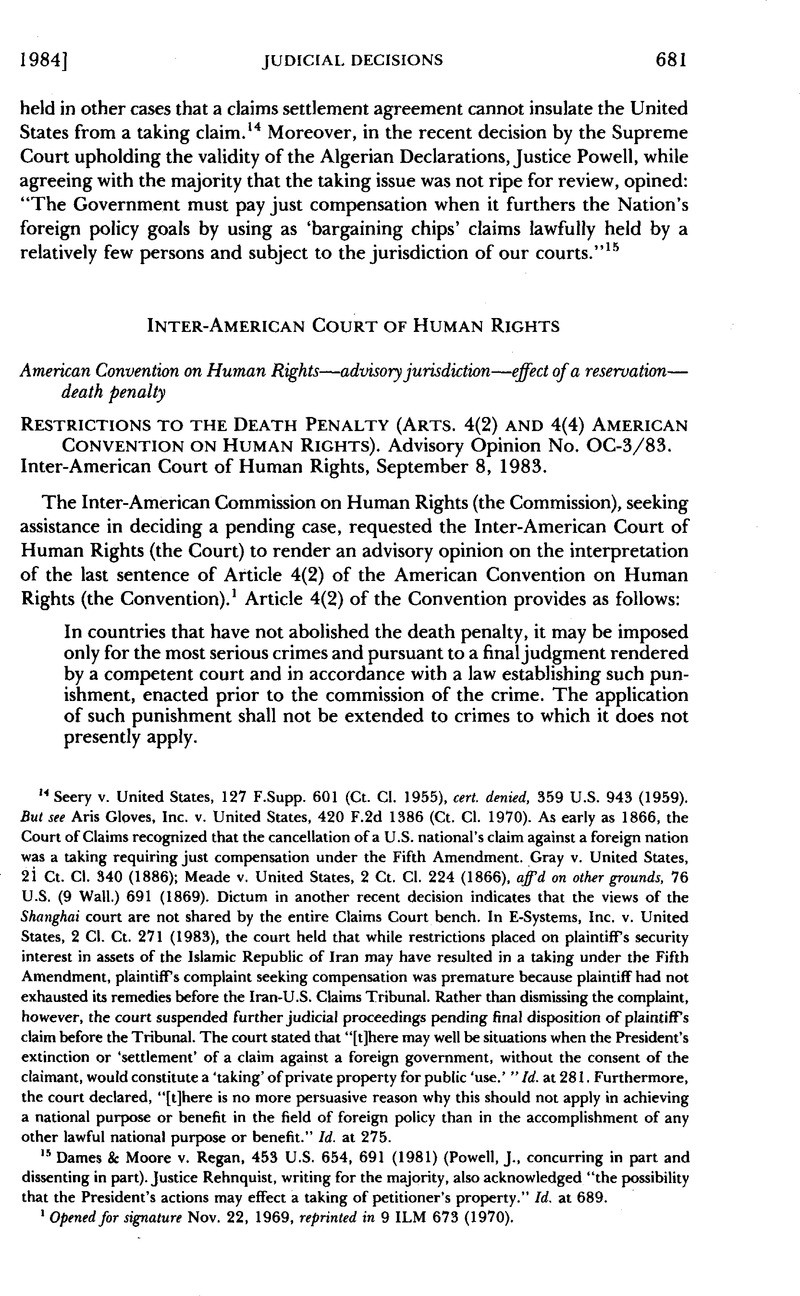Published online by Cambridge University Press: 23 March 2017

1 Opened for signature Nov. 22, 1969, reprinted in 9 ILM 673 (1970).
2 Article 4(4) provides as follows: “In no case shall capital punishment be inflicted for political offenses or related common crimes.”
Upon ratifying this Convention, the Government of Guatemala made “a reservation with regard to Article 4, paragraph 4 of the [Convention], inasmuch as the Constitution of the Republic of Guatemala, in its Article 54, only excludes from the application of the death penalty, political crimes, but not common crimes related to political crimes.” Advisory Opinion OC-3/83, slip op. at 5.
3 The Permanent Commission is the advisory body to the President. Rules of Procedure of the Inter-American Court of Human Rights, Art. 6(1), reprinted in 20 ILM 1289 (1981).
4 Statute of the Inter-American Commission on Human Rights (Oct. 1979), reprinted in 1 The Inter-American System: Treaties, Conventions and Other Documents, pt. 2, at 98 (F. V. Garćia-Amador ed. 1983).
5 Article 62(1) of the Convention provides as follows:
A State Party may, upon depositing its instrument of ratification or adherence to this Convention, or at any subsequent time, declare that it recognizes as binding, ipso facto, and not requiring special agreement, the jurisdiction of the Court on all matters relating to the interpretation or application of this Convention.
6 Slip op. at 15.
7 The dichotomy between the Court’s contentious and advisory jurisdiction is explicitly reflected in Article 2 of the Court’s Statute of 1979 and is implicit in a comparison of Articles 62(1) and 64 of the Convention. The Court’s Statute is reprinted in 19 ILM 635 (1980).
8 Slip op. at 9.